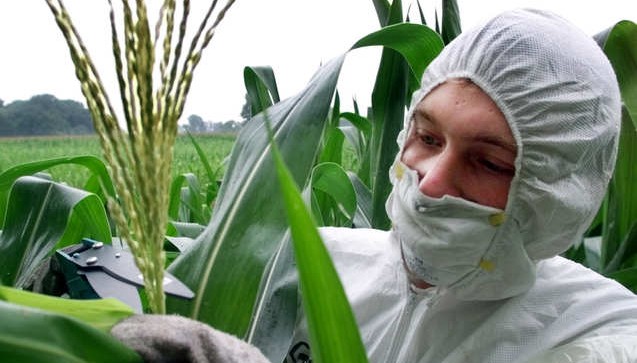Speculative GMO plants sprouting up throughout America, while USDA, the overseeing company, takes ‘industry-friendly strategy’
Experimental crops genetically engineered to withstand high doses of chemicals are growing across the United States, and also sometimes illegally. Rarely does the biotech industry suffer repercussions, as the U.S. Department of Farming (USDA), the agency responsible for oversight, greatly ignores violators.
Field trials entailing genetically modified organisms (GMOs) serve a plethora of objectives, consisting of both commercial and pharmaceutical applications. The USDA, accountable for protecting America’s food supply, is intended to manage these field tests.
Papers acquired by Hearst Newspapers via the Liberty of Details Act (FOIA) made known a “promptly increasing exterior testing and industry-friendly administration of those experiments,” according to a record by the San Francisco Chronicle.
A cautious review of the records discovered that the Animal as well as Plant Health and wellness Evaluation Company (APHIS), an agency under the USDA accountable for managing GMOs, amongst various other tasks, has been taking it rather easy on violators, issuing merely 2 civil fines for area test violations because 2010, regardless of there being numerous notifications of non-compliance
The incidences range from small documentation violations to lost gmos as well as seeds expanding where they shouldn’t be, according to a report by Seattlepi.com.
GMO inspectors issue just 2 citations in spite of there being at the very least 200 files of non-compliance.
Gebbers Farms of Brewster, Washington, a business expanding GM apples, was among those penalized. Mentioned previously for growing GM apples too near traditional apples, failing to take great records and also making no efforts to keep pets from reaching the plants, APHIS issued Gebbers a $19,250 fine.
APHIS is supposedly accepting licenses for pharmaceutical corn along Californian’s Central Coastline despite accusations that the company’s founder polluted Midwestern plants with GMOs, according to Hearst’s investigation.
To this day, nearly 20,000 area tests have actually been authorized by APHIS, covering concerning 100,000 growings of GMO plants. Only crops genetically engineered to generate pesticides are regulated by the Environmental Security Firm (EPA). Calling the USDA’s work extensive would be an understatement.
Once they struck the market, no more monitoring for GMOs
When new kinds of GMOs hit the market, there is no more surveillance or testing to identify prospective unexpected repercussions (like health and wellness and ecological results), highlighting the value of field trials. The regulative system’s weak point fasted ecological teams to petition the USDA for more powerful administration of speculative plants.
” The convenience with which individuals can check things in the open air difficulties me,” said Lynn Clarkson, a grain business driver who offers non-GMO seed. “We’ve basically opened up parts of America for trial and error.”
Instances of unapproved GM rice, cotton, wheat and also canola found growing throughout the nation
In 2013, Monsanto’s GM wheat was found expanding wildly in Oregon, prompting anti-GMO countries like Europe and Japan to momentarily put on hold all U.S. wheat imports. Canola genetically engineered to resist exclusive weed killers was discovered growing in North Dakota in 2010.
That very same year, a speculative plot of cotton genetically engineered to stand up to bugs was found growing in Texas, causing Monsanto being required to pay a civil penalty of $18,690. Later on referred to as “the Monsanto incident,” the GM cotton, together with conventional cotton, was sent out for processing.
While Monsanto maintains that humans ate none of it, they confessed that some of it entered the supply chain and also was used for livestock feed in the United States and also Mexico. Monsanto chalks the mistake around “poor communication” and also “human error.”
Monsanto claims it’s performed an estimated 26,000 field trials given that 1990, totaling up to one-fourth of the approximate 100,000 field trials in the United States. The Missouri-based biotech firm received at least 35 notifications of non-compliance by APHIS in 2010 through 2013, more compared to other business; nonetheless, the company was only provided one infraction.





